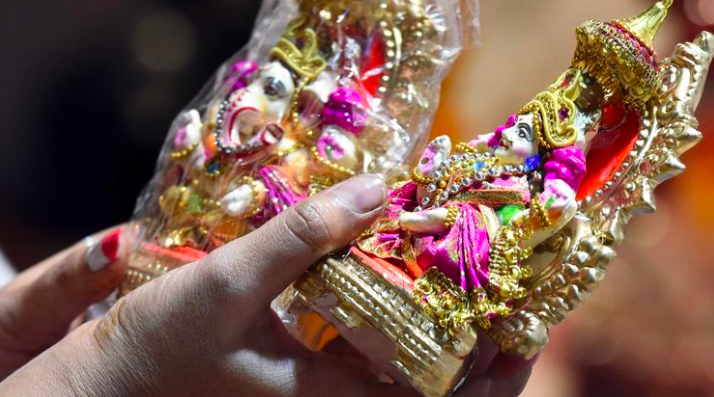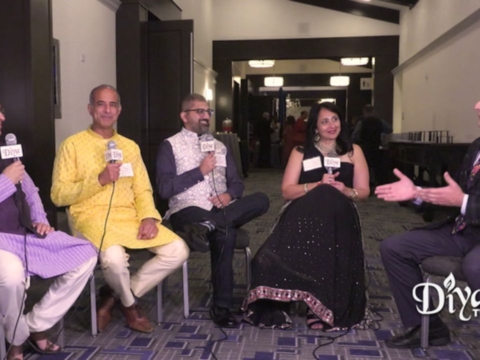
SAN FRANCISCO (Diya TV) — Several questionable items, such as toilet seats, shoes and dog tags, have in recent years gone on sale adorned with the images of Hindu deities, particularly that of Ganesha, known most commonly in the West for his elephant face.
“It is inappropriate, and it is offensive to devotees,” said Rajan Zed, a Reno, Nev.-based Hindu activist who protests against such commercial products, in an interview with the Los Angeles Times.
“I haven’t seen Christ on toilet seat covers. Or any symbol of Islam,” Vasudha Narayanan, a professor of religion at the University of Florida, added. “If you wouldn’t do it with one, why do you want to do it with something else? Or at least wouldn’t it behoove you to check?”
Zed said he receives a message about insensitive commercial use of an Hindu image every few months.
Most recently, Zed approached Amazon to pull deity-decorated skateboards and bedding from its online shelves. Earlier this year, the hashtag #boycottAmazon trended on Twitter in India after users discovered doormats with images of Hindu deities available for sale. Amazon removed the items within days.
Most of the time, when Zed reaches out to companies with such a request, he said, they apologize and comply. “It’s ignorance, basically,” Zed said. “People don’t know our traditions and our deities.”
Indians are still considered a relatively new immigrant group in the U.S., the majority arrived in the country after the immigration laws were changed in 1965. Indians comprise only about 1% of the U.S. population, and Hindus are a fraction of that, as Indians practice a variety of faiths. There also are Hindu immigrants from other countries, albeit in even smaller numbers.
Some Hindu symbols have become particularly valuable to some brands.
For example, Brahma Beer in Brazil, estimated to be the world’s ninth top-selling beer, carries a name that also refers to a Hindu god. Zed said he contacted Anheuser-Busch InBev, now the owner of Brahma, about discontinuing the product, but he acknowledged that it was too significant a revenue source for the company to terminate.
In the U.S., the yoga industry is a multibillion-dollar per year business. One which has for years been churning out yoga mats, towels and exercise pants that place “om” symbols and images of Ganesha close to or directly underneath the feet and legs. The fact that these images are so valuable to companies is a real problem, said Suhag Shukla of the Hindu-American Foundation.
“On the one side, people are very familiar with Hindu concepts like karma or reincarnation” and practices like yoga, she said. But on the other hand, these elements have been stripped of any association with Hinduism.
Shukla’s group is trying to change that. Its members previously launched a “Take Back Yoga” campaign to educate the public about yoga’s connection to Hinduism.
Information from the Los Angeles Times contributed to this report.




